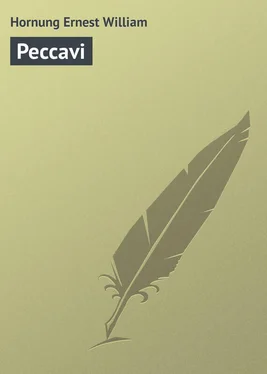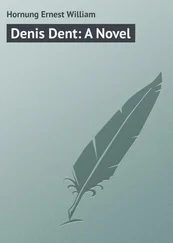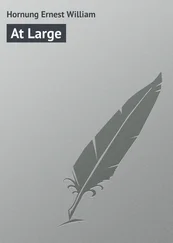Ernest Hornung - Peccavi
Здесь есть возможность читать онлайн «Ernest Hornung - Peccavi» — ознакомительный отрывок электронной книги совершенно бесплатно, а после прочтения отрывка купить полную версию. В некоторых случаях можно слушать аудио, скачать через торрент в формате fb2 и присутствует краткое содержание. Жанр: foreign_prose, на английском языке. Описание произведения, (предисловие) а так же отзывы посетителей доступны на портале библиотеки ЛибКат.
- Название:Peccavi
- Автор:
- Жанр:
- Год:неизвестен
- ISBN:нет данных
- Рейтинг книги:3 / 5. Голосов: 1
-
Избранное:Добавить в избранное
- Отзывы:
-
Ваша оценка:
- 60
- 1
- 2
- 3
- 4
- 5
Peccavi: краткое содержание, описание и аннотация
Предлагаем к чтению аннотацию, описание, краткое содержание или предисловие (зависит от того, что написал сам автор книги «Peccavi»). Если вы не нашли необходимую информацию о книге — напишите в комментариях, мы постараемся отыскать её.
Peccavi — читать онлайн ознакомительный отрывок
Ниже представлен текст книги, разбитый по страницам. Система сохранения места последней прочитанной страницы, позволяет с удобством читать онлайн бесплатно книгу «Peccavi», без необходимости каждый раз заново искать на чём Вы остановились. Поставьте закладку, и сможете в любой момент перейти на страницу, на которой закончили чтение.
Интервал:
Закладка:
"But why should they pay?" cried Carlton, impetuously. "The church was not burnt down for my neighbours' sins, nor for the sins of the parish, but for mine alone.. Oh, my lord, if I could but go back among my people, and be their servant, I who was too much their master before! I was not quite dependent – thank God, I had a little of my own – but every penny should be theirs!"
And the profligate priest stood upright before his bishop – his white hands clasped, his white face shining, his burning eyes moist – zealot and suppliant in one.
"You desire to spend your income – "
"No, no, my capital!"
"On the poor of your parish? I – I fail to understand."
"And I scarcely dare make you!" confessed Carlton, his full voice failing him. "I so fear your disapproval; and I could set my face against all the world, but against you never, much less after this morning.. Oh, my lord, I have set my poor people a dastardly example, and brought cruel shame upon my cloth; for its sake and for theirs, if not for my own, let me at least leave among them a tangible sign and symbol of my true repentance. I have the chance! I have such a chance as God alone in His infinite mercy could vouchsafe to a miserable sinner. My church at Long Stow has been burnt down through me – through my sin – to punish me – "
"Are you sure of that, Mr. Carlton?"
"I know it, my lord. And I want to do what only seems to me my bounden and my obvious duty, and to do it soon."
The bishop looked enlightened but amazed.
"You would rebuild the church out of your own pocket? Is that really your wish?"
"It is my prayer!"
VIII
THE LORD OF THE MANOR
Wilton Gleed owed his success in life to a natural bent for the politic virtues, and to the quality of energy unalloyed by enterprise. He was a man of much shrewdness and extraordinary tenacity, but absolutely no initiative; so he had taken his opportunities and held his ground without running a risk that he could remember. Not a self-made man, he was, however, the son of one who had made himself by dint of that very enterprise which was lacking in Wilton Gleed. The father had seen a certain want and filled it to the satisfaction of the wide world; the son had extended the business without meddling with the product of the firm. Monopolies die hard. Gleed & Son did nothing to deserve a swift demise. They just stalked behind the times, and appeared to thrive on a sublime contempt of competition. And those who knew him best were the most surprised when Wilton Gleed turned the great concern into a limited liability company, and made a fortune out of the transaction alone; it was the most daring thing that he had ever done.
The reason for the step may be related as characteristic of the man. Age had given the firm a certain aristocracy of degree – not of kind – even age could not soften the fact that Gleed & Son sold things in tins. And the tins it was that turned plain Gleed & Son into Gleed & Son, Limited. Some innovator was making tins with cunning openers attached; the lesser firms jumped at the improvement. The lesser firms were already doing Gleeds' some slight damage in their go-ahead little way; but the worst they could all do together was as nothing compared with the extra expenditure of an appreciable fraction of a farthing per tin on an output of millions in the year. Wilton Gleed could not face the immediate hole in his profits. He had never taken a risk in his life, and was not going to begin. He had increased his expenses by going into Parliament, and he was not such a fool as to play tricks with his income. He faced the situation as though it were ruin staring him in the face, and lost a discernible measure of flesh before his big resolve. It was all he did lose over the ultimate operation. He retired into private and public life with more money than he knew how to spend.
The average man is at his best as host, and in that capacity Wilton Gleed was popular among his friends. He was an excellent sportsman of the selfish sort; cherished a contempt for the various games which involve playing for one's side; but was a first-rate shot, a fine fisherman, and a good rider spoilt by his great principle of refusing the risks. To shoot and dine with him was to see Gleed at his very best. He was a bald little man, with silver-sandy moustache and close-cropped whiskers; but his full-blooded face was still pink with health, his fixed eye unerring as ever, his step elastic as the heather he loved to tread. Gun in hand, in his tweeds and gaiters, and with his cap pulled well over his head, Wilton Gleed never passed the prime of life; it was late in the evening before he collected the years blown away on the moor; and in its way the evening was as delectable as the day. The dinner was a good one, and the host abandoned himself to its joys with a schoolboy's ardour. Irreproachable champagne flowed like water, more especially at the head of the table. Gleed carried it like a gentleman, also the port that followed, though a little inclined to be garrulous about the latter. As he sipped and gossiped, and settled the Eastern Question in two words, and Mr. Gladstone's hash in one, the skin would shine as it tightened on the bald head, and the always intent eye would fix the listener beyond the needs of the conversation. It was very seldom, however, that a syllable slid out of place, or that Wilton Gleed went to bed looking quite his age.
For some years he had leased various shootings in the autumn, spending the other seasons at a lordly but suburban retreat inherited from his father, with an occasional swoop abroad – the correct place at the correct time – less for enjoyment than for other reasons. Gun, rod, and cellar were what he did enjoy, and of these delights he vowed to have his fill after getting out of Gleeds with unexpected spoils. A sporting estate was in the market within two hours and a half of town; and for forty thousand pounds Wilton Gleed became squire of Long Stow, patron of an excellent living, and a large landowner in a country where he had a nucleus of friends and soon made more. As Member of Parliament for that division of London in which Gleeds had employed hundreds of hands for half a hundred years, he at the same time bought a house in town, and let the place outside. Subtler investments followed. The man was becoming a gambler in his old age; but he played his own game with ineradicable care and foresight, and rose Sir Wilton Gleed when his side lost in the General Election of 1880. It was only a knighthood, and Sir Wilton might have entertained justifiable hopes of his baronetcy; but one or the other had been a moral certainty for some time.
It was in Hyde Park Place that Sir Wilton first heard of the Long Stow scandal and its immediate sequel. The news came in a few dry lines from Sidney, by the first post on the Monday morning, June 26, 1882. It fell like a firebrand in a keg of gunpowder. Sir Wilton, however, had even better reasons than were obvious for his paroxysm of rage and indignation; personal mortification was not the least of his emotions. He would have gone down by the next train to "horsewhip the hound within an inch of his life," but the cur had taken refuge in Lakenhall Infirmary, "with very little the matter with him," in Sidney's words. And just then the House was an Aceldama which no good soldier could desert for a night, with the Government satisfactorily on the spit between Phœnix Park and Alexandria, and the Opposition creeping up vote by vote. Sir Wilton decided to run down on the Wednesday for twenty-four hours, and talked of having the rectory furniture thrown into the street if the rector was not there to take it and himself away for good. Sir Wilton had his own impression as to his powers as patron of the living, and he very naturally swore that he would "have that blackguard out of it" within the week. A friend at the Carlton put him right on the point.
Читать дальшеИнтервал:
Закладка:
Похожие книги на «Peccavi»
Представляем Вашему вниманию похожие книги на «Peccavi» списком для выбора. Мы отобрали схожую по названию и смыслу литературу в надежде предоставить читателям больше вариантов отыскать новые, интересные, ещё непрочитанные произведения.
Обсуждение, отзывы о книге «Peccavi» и просто собственные мнения читателей. Оставьте ваши комментарии, напишите, что Вы думаете о произведении, его смысле или главных героях. Укажите что конкретно понравилось, а что нет, и почему Вы так считаете.












